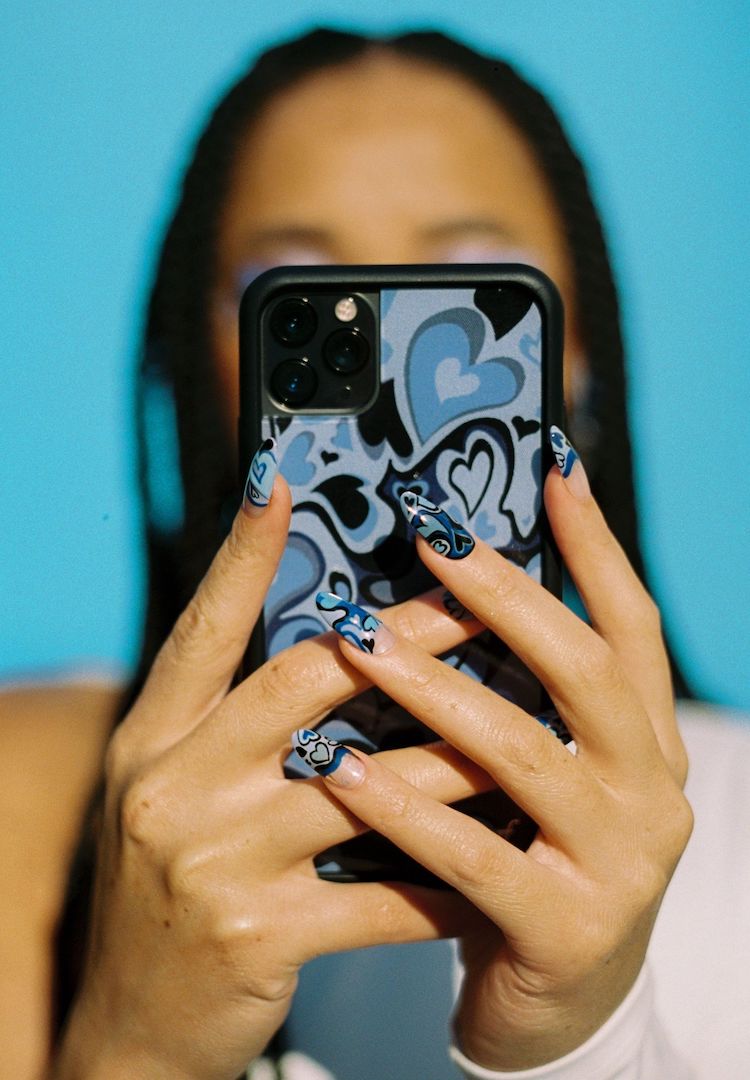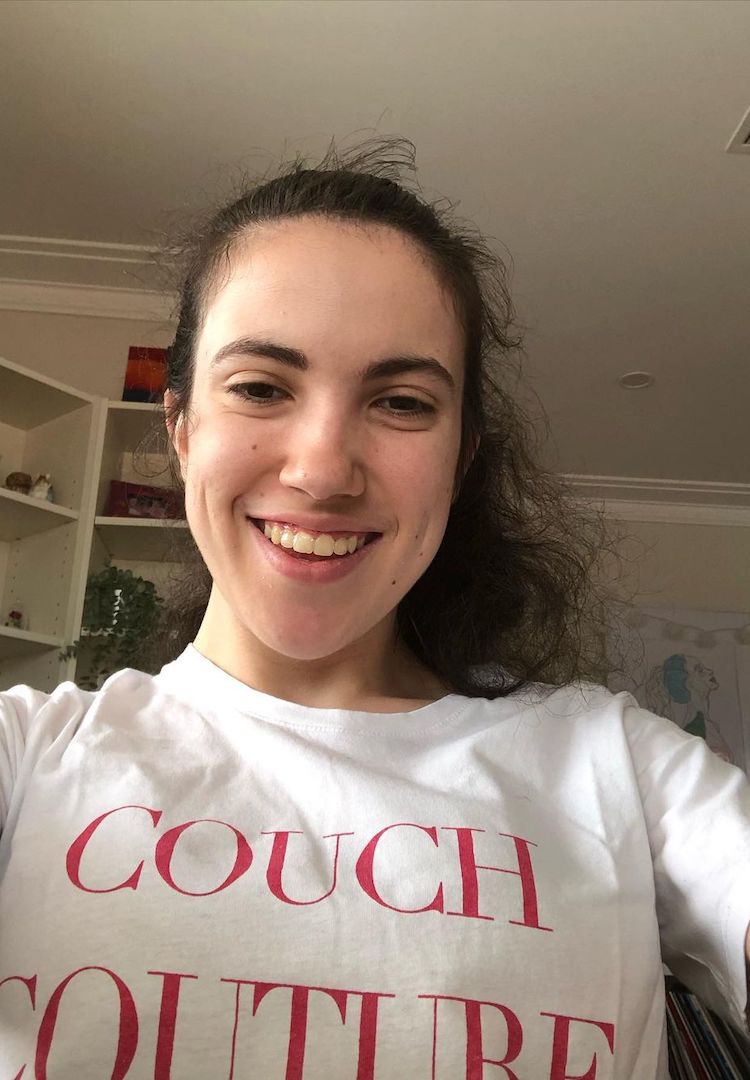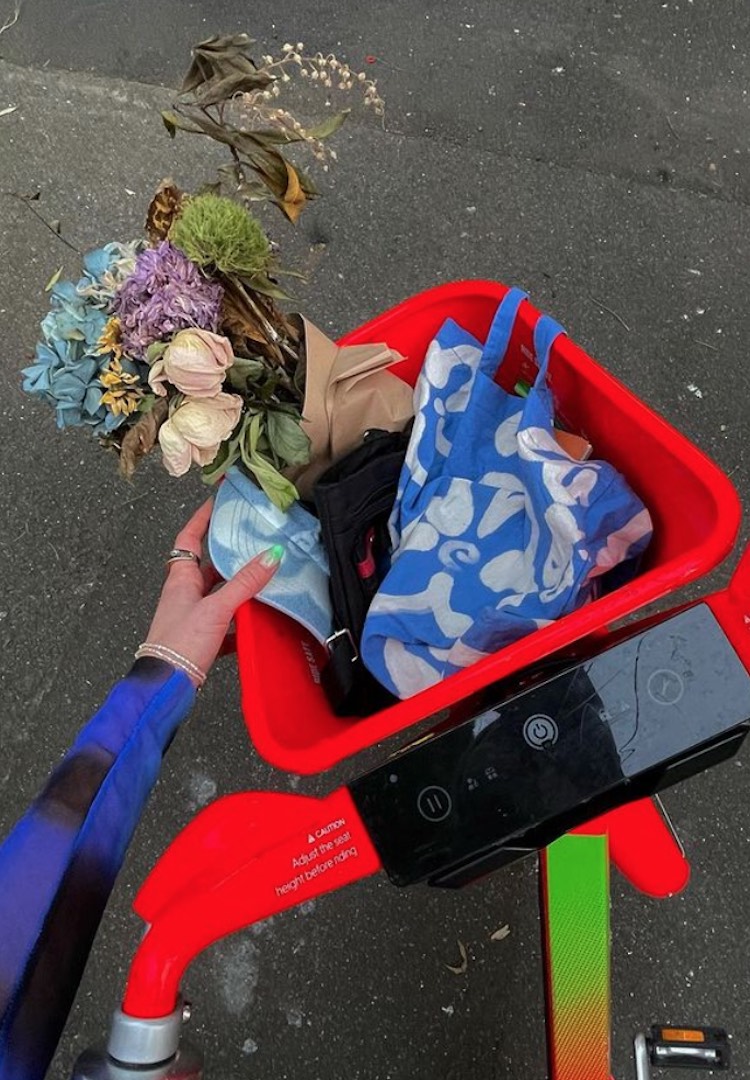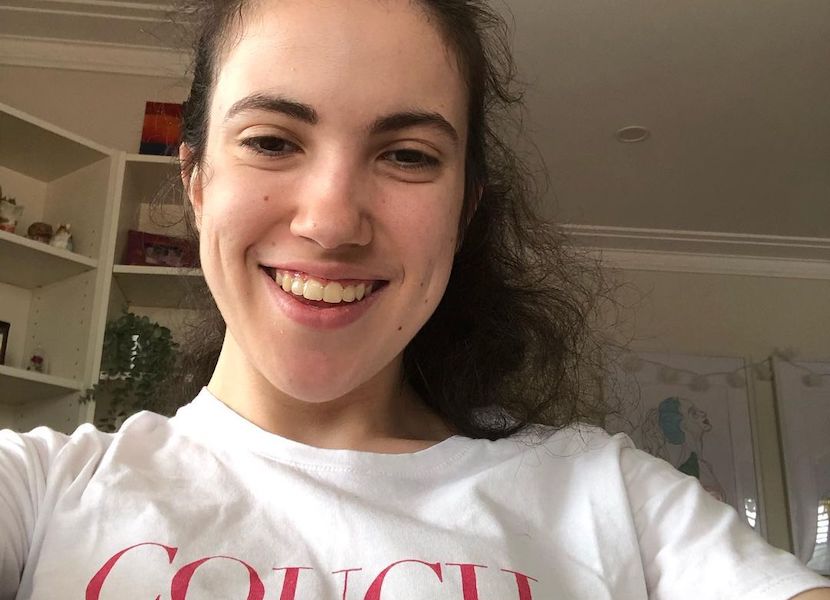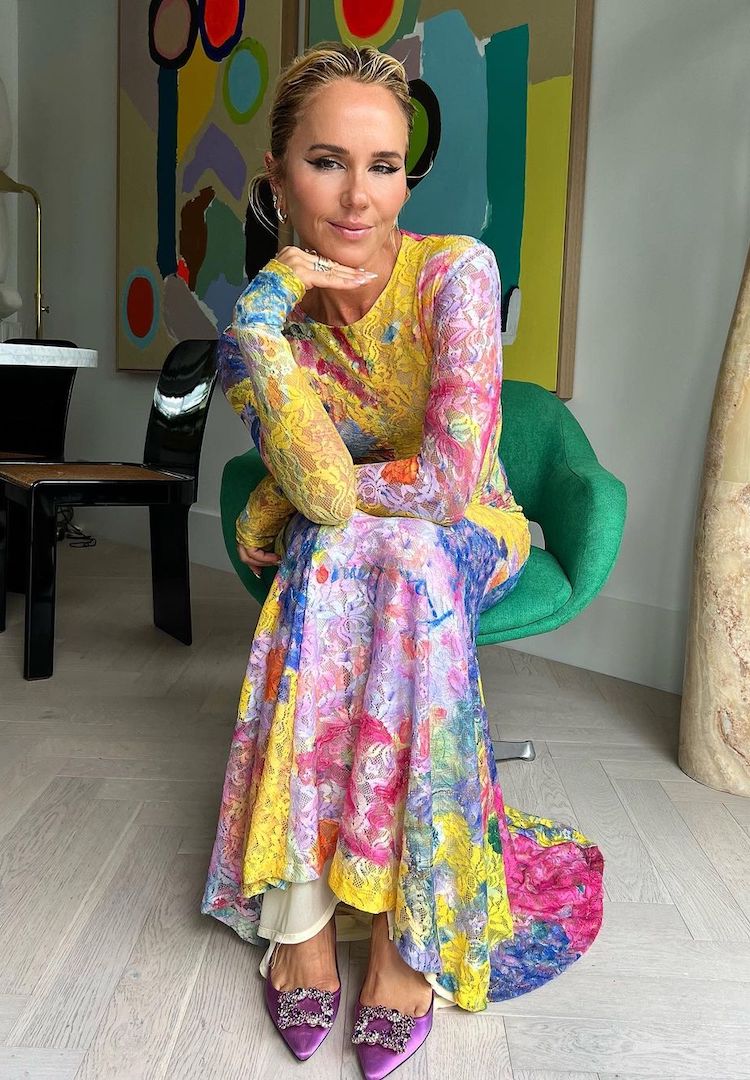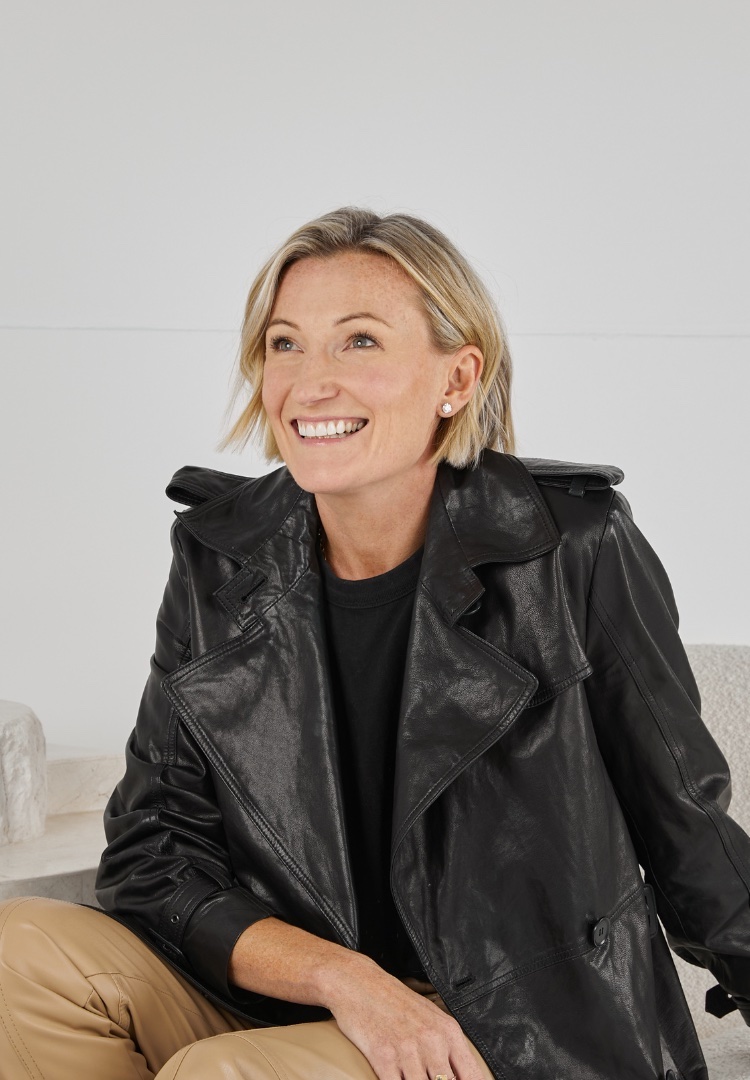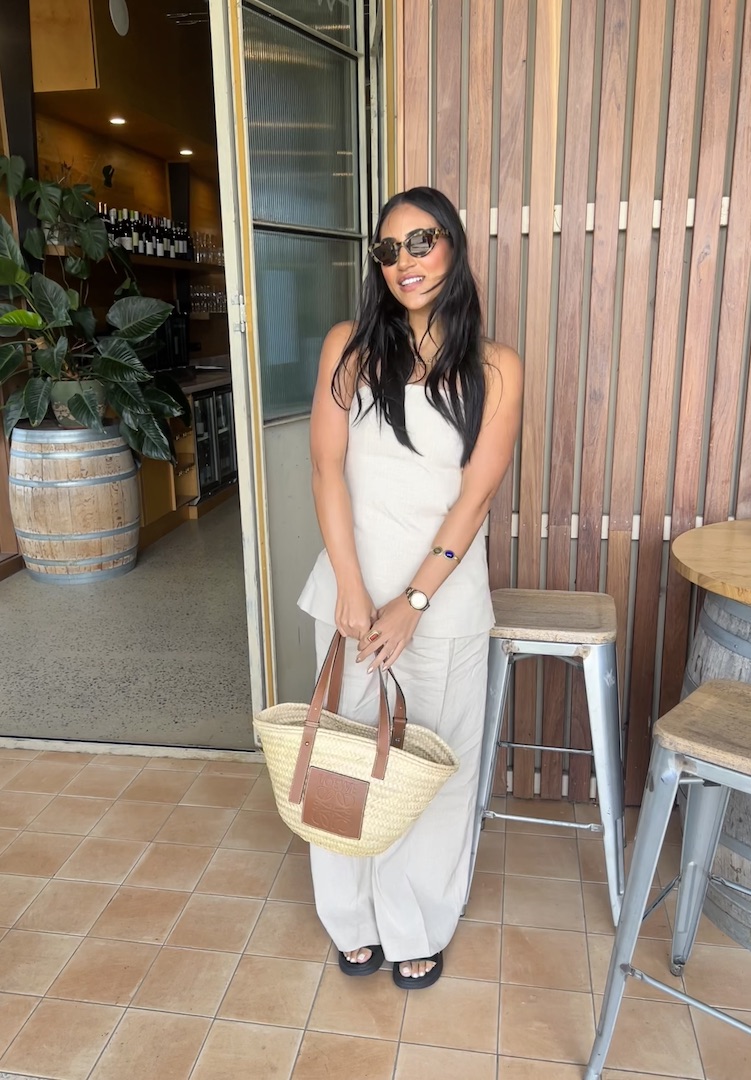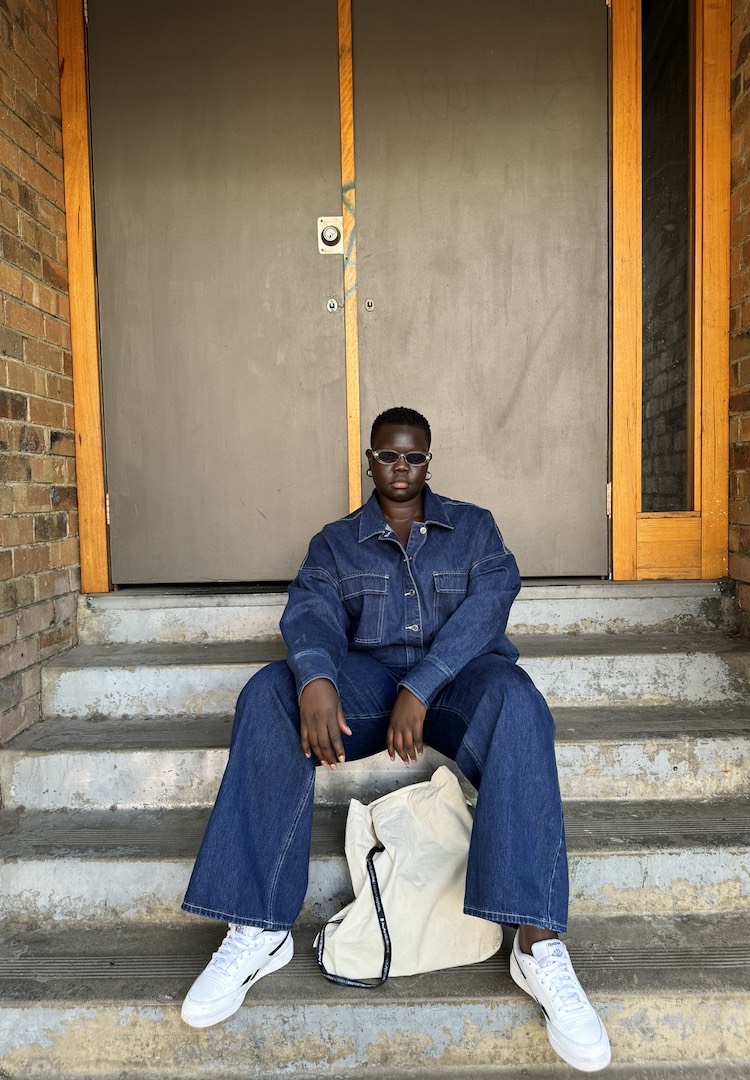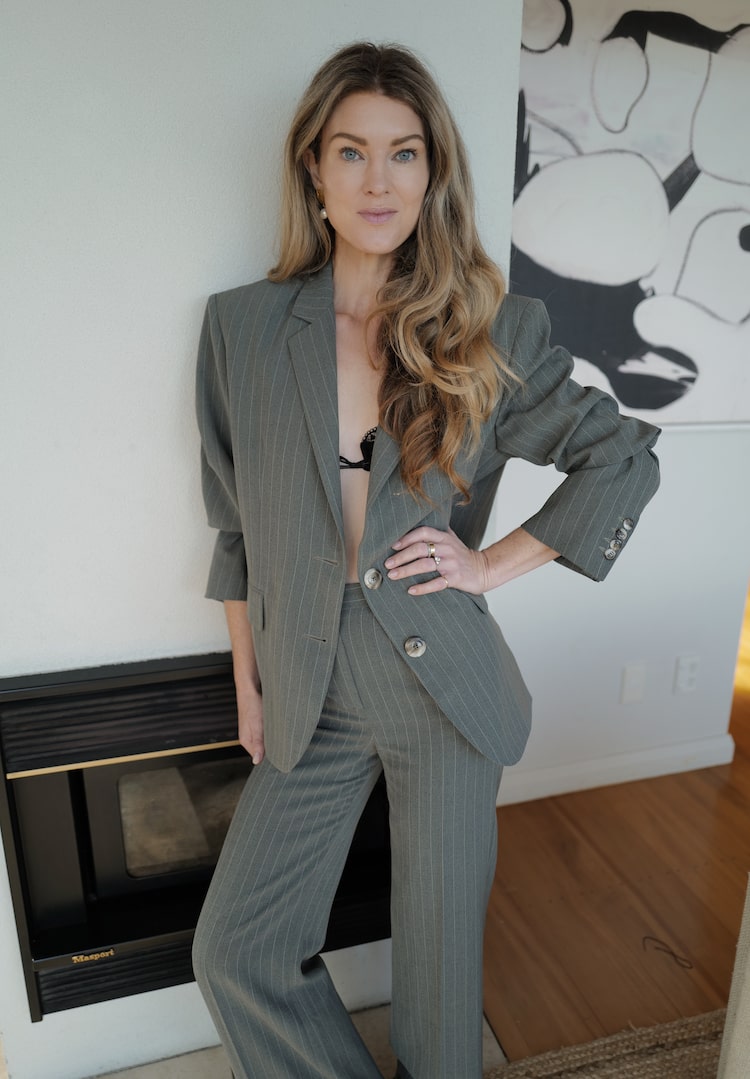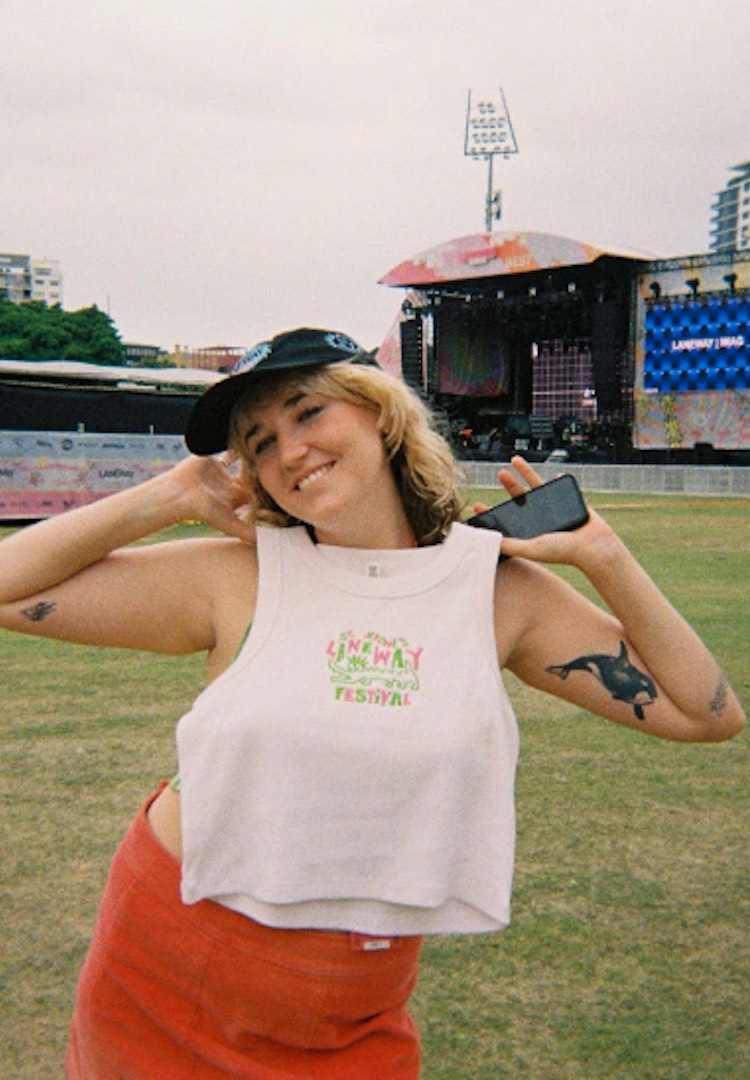Disability advocate Hannah Diviney on finding a better work-life balance
Words by The Foreword
On juggling work, personal projects, commitments, medical appointments and assignments.
This article was originally published on The Foreword, a weekly careers-focused newsletter featuring advice, insights and recommendations from an array of exceptional people. You can subscribe to it here.
Busy is an apt descriptor for Hannah Diviney. The full-time student, disability advocate and freelance writer’s days are brimming with work, personal projects, commitments and assignments but as she tells The Foreword: “What matters is being content and feeling fulfilled.”
Living with cerebral palsy also means her days can be claimed by appointments and therapies; “It can be like having a full-time job with no pay or breaks, living in this body.”
Looking for more careers related content? Check out our Life vertical.
This balancing act means Hannah is bursting with useful advice and tips to file away for later. Hannah also presents thoughtful insights on seizing opportunities when they’re yours for the taking; “eating the elephant one bite at a time”; why nerves are a good thing and the “unrecognised emotional labour” of disability advocates.
Tell us a little about yourself, who are you, and what do you do?
I’m 21 years old, living in Sydney, and I work as a freelance writer and disability advocate on top of managing full-time uni. I have a disability called Cerebral Palsy (CP) which affects my gross and fine motor skills, so everything from walking and balance, to my handwriting and my skills with a knife and fork. That means I navigate the world in a wheelchair. All of this is important context because it informs pretty much all of what I do and how it gets done.
What does an average day look like for you?
Well, as I said, I’m a full-time uni student, in my final year of a Bachelor of Arts/International Studies Degree, at the University of Wollongong, so an average day looks a lot like taking classes, doing readings, and working on assignments! But career-wise, an average day can hold anything from working on writing, promoting my campaign asking Disney to create a Disabled Disney Princess (sign here!!!) doing interviews or podcasts, or working as an advocate in a consulting capacity on a number of different committees, initiatives and research projects!
Not to mention all the appointments, therapies and other things that come with trying to live your best life, and keeping things maintained when you’re disabled. It can be like having a full-time job with no pay or breaks, living in this body, so life is busy!
What advice do you have for striking a work/life balance?
I’m still very much figuring this out, and I definitely don’t always get it right, especially because the pace of work at the moment is still fairly new to me, BUT some strategies that work for me are:
- Using the calendar app on my iPhone to lay everything out clearly so I can see exactly what I’ve committed to and when.
- Giving myself a good old-fashioned ‘to do’ list because there’s nothing quite like the satisfaction of crossing something off and being able to SEE what you’ve accomplished.
- Not being afraid to say ‘No’ (still working on this one) to things that don’t excite me/motivate me/I just can’t fit in.
What anxieties, if any, do you hold about your life/career? And how do you deal with them?
Oh man, so many! I, unfortunately, have this niggling thing at the back of my brain called Imposter Syndrome, which likes to loudly interrupt any achievement or success and tell me that at any moment, someone’s going to come up behind me, tap me on the shoulder and say, “okay, Hannah – time to wake up now!”
And I think that comes from living in a world that isn’t built for me; as a person with a disability, the idea that I don’t fit in or that I don’t deserve a seat at the table and that my success could very easily disappear if I don’t make the most of it. To deal with that, I try to be transparent about the fact that I have those anxieties, and I also try to work as hard as I can, while the window of opportunity is open, because I really want this – the work that I’m doing now – to last as long as I can.
How do you deal with procrastination?
Will you hate me if I say I don’t really procrastinate? Maybe it’s just a side-effect of having high-functioning anxiety that never lets you come close to missing a deadline. Sometimes though, that means I get really overwhelmed when I’ve got a lot going on, and that can be sort of paralysing, so often I have to remind myself to breathe and ‘eat the elephant one bite at a time.’
When working on a new project, how do you overcome self-doubt and fear?
I remind myself that being nervous is a good thing – it shows you care! If you’re not nervous when you’re putting something out into the world, then that’s when you have a problem. Some incredible things have happened to me in my life because I just jumped and took a leap of faith, surprisingly without overthinking too much what would happen when I landed. Nothing can be lost if you put yourself out there – there’s kind of the potential for anything and everything to be gained.
View this post on Instagram
Do you have any rituals that help with your work or mental health?
I don’t know if these are rituals, so much as steps I take to look after myself, but I make sure I eat when I’m hungry, sleep when I’m tired – all that sort of stuff. I know that all sounds super obvious, but as someone whose body and brain deals with pretty significant and life-impacting pain, fatigue and mental illness, I’ve learned that listening to my body and pacing myself is really important. So is getting exercise, fresh air, hanging with my family and doing things that switch my brain off once in a while.
Can you recommend any resources that have helped you in your career?
Following the Twitter hashtag #callforpitches, using various publication’s pitch guidelines (readily available online most of the time), being aware of who writers and editors are – social media’s your best friend here!!! I’ve also joined FB groups relevant to writing and working in media, like Young Australian Writers and so many others.
What’s the best and worst advice you’ve ever been given?
The best advice is probably that stuff I mentioned earlier about nerves being a sign of care and also, as cliché as it sounds, to not be afraid to let people know me and present myself as I am, even, and especially, if that means being honest about a bad day, or my insecurities or pain, you know? In terms of worst advice, I think every not-so-great situation I’ve found myself in has come from being made to feel like I should ignore my gut instincts.
Are there any misconceptions about what you do that you’d like to dispel or clarify?
Probably just that it’s easy and that it doesn’t take a lot of work. That’s definitely not true! Being your own boss is exhausting, and for all of the things I do that go well, there are so many behind the scenes that don’t work out or don’t catch people’s attention in the way I’d have liked them to.
Also, I think it’s important for people to realise that a lot of advocacy work goes unpaid unless you start building up a reputation and have the means to charge fees without that being a deterrent for people wanting to amplify your voice. There’s also a lot of unrecognised emotional labour that goes with being an advocate – especially, by virtue of our work, we’re being vulnerable, personal and opening ourselves up to a constant stream of dialogue.
How do you navigate social media, any rules or guidelines you set for yourself?
As someone in my early twenties who has found that my activism resonates best on social media, I use it a lot! Instagram, Twitter, Tumblr and most recently, TikTok are my platforms of choice. I think the rules I try to follow are: responding to everyone but ignoring the haters, being unafraid of honesty, rawness and working not to feel like I have to censor myself. I also make it a rule only to follow accounts that make me feel good, people I’m empowered by or am curious about in a positive way.
View this post on Instagram
If you could distil it down to three key messages, what do you hope people learn/take away from what you do?
1. Disabled people deserve rich and full lives, where they are seen as individuals with passions/desires/needs/hobbies. Representation matters. We are not one-dimensional; we cannot be reduced to just our disabilities.
2. No matter who you are or what you have to deal with in life, you have value, and you deserve to feel worthy.
3. Life’s too short not to go after what YOU want. We only get one go at this thing, so we might as well make it count. But that doesn’t mean everyone’s life has to be big and world-changing. What matters is being content and feeling fulfilled; it doesn’t matter what that looks like.
List five things keeping you inspired right now.
1. The book Growing up Disabled in Australia, an epic anthology chronicling the experiences of all sorts of wonderful humans who are disabled in one way or another through essays, poems, letters, etc. It’s the first book of its kind in the country, and I think it tells some really important stories about the truth of living with a disability beyond being seen as a source of tragedy/ inspiration. You can buy it here.
2. @thebodzilla on Instagram. April just does so much with her platform to create joy and acceptance, to cultivate inclusion and to push back against the bullshit narratives that women in particular are forced to digest every single day. She’s like the Australian Jameela Jamil, who I also adore. Basically, follow both those powerhouses and your life and Instagram feed will be SO much better.
3. The podcast Terrible, Thanks for Asking, which is just an honest, unfiltered, often heart-wrenching look at the bad stuff we go through in life and how to move forward. I know a lot of us shy away from talking about hard things, but I find that the more we talk, the less isolating and scary the hard thing feels.
4. Taylor Swift music – but then again, that’s always been true, it’s not really limited to a ‘now’ thing hahaha! I just think she’s such an important figure for young girls to see, because she essentially built her career from the ground up; all the time being in the driver’s seat. She’s never shied away from being raw and vulnerable and always owned her emotions through art she created (and should own, but that’s another story).
I think it’s good for us all to see a woman at the head of the boardroom table, behind the camera, owning a stadium and just being in charge of every decision. Not to mention that she’s a pretty interesting person to think about when we look at misogyny, both overt and internalised, sexism, power dynamics and a bunch of other stuff. One day I’ll write a whole essay on Taylor!
5) Inégal, a company founded by supermodel and scoliosis activist Martha Hunt. I’ve always had a really tense relationship with fashion and beauty, not feeling like those were worlds I belonged in. After seeing Martha’s fabulous collaboration with an artist with CP, @lindsaybriadams on Instagram, I felt this flicker of power. Now, the jumper they designed together is one of my favourite pieces of clothing and every time I wear it, it feels like armour against any hard stuff.

